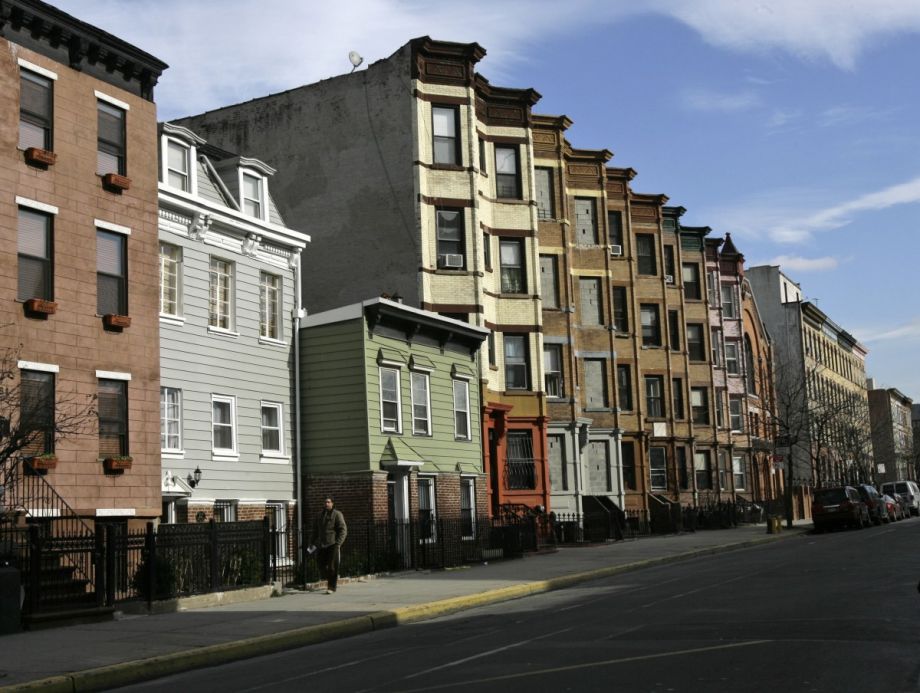| |
 Posted Dec 7, 2014, 9:48 PM
Posted Dec 7, 2014, 9:48 PM
|
 |
Registered User
|
|
Join Date: Aug 2002
Location: Toronto
Posts: 52,200
|
|
|
3 Ways Communities Can Take Control of Gentrification
3 Ways Communities Can Take Control of Gentrification
DECEMBER 4, 2014
By SANDY SMITH
Read More: http://nextcity.org/daily/entry/gent...-housing-ideas
Quote:
Is gentrification bad for low-income minority communities? The answer may depend on how you define “gentrification.” The panelists who participated in a discussion on “Gentrification, Integration and Equity,” hosted by Next City on Dec. 3rd, had definitions that varied widely, and not all of them agreed that it was a bane. But the issue of better-off residents moving into low-income neighborhoods, no matter how one defines or slices it, does call for cities and communities to come up with ways to counter the ill effects and develop alternative, inclusive visions for redevelopment.
- The panel’s scholar, New York University professor Ingrid Gould Ellen, said she didn’t even like using the term, because “all of us have something very different about it in our heads.” Activist Eric Grimes, co-founder of AAKT (Action, Advocacy, Knowledge and Training) Concepts for Social Justice and Community Development, had the most expansive and provocative definition, linking the term to the 18th- and 19th-century landed gentry who owned his ancestors, and tied the term to the systematic stripping of assets and exclusion from the power structure that blacks in America have experienced through history.
- Ellen gave the narrower, more common definition: the increase in rents and house values triggered by an influx of more affluent residents into a low-income neighborhood. While she noted that at the nationwide level, low-income minority neighborhoods are no more likely to gentrify than non-minority ones — “in fact, low-income black ones are less likely to gentrify because whites are still afraid to move into them” — Grimes did point out (and Ellen agreed) that blacks make up a larger share of the population in the nation’s 25 largest cities, and in those cities, especially New York, the process disproportionately affected black neighborhoods.
- Ensure every stakeholder in the community has a place at the table before the process advances too far. This means bringing community members into the planning process from the start and making sure developers respect community goals and priorities. Jennifer Rodriguez, executive director of the Mayor’s Office for Immigrant and Multicultural Affairs in Philadelphia, noted that this will require understanding how information travels through communities and how people within them voice their concerns. When she was involved in planning in eastern North Philadelphia with Asociación de Puertorriquenos en Marcha (APM), Rodriguez said, the group varied its outreach efforts depending on the community: “If a community was savvy about the Internet, that was how you communicated, but where I was working, it was all relationship-based, so you needed to knock on doors.”
- Learn how the planning and development process works. In Philadelphia, the main way for communities to shape their development is via the Registered Community Organization (RCO), a legally recognized group that has review power over developments that require zoning variances. But not all RCOs reach out to or represent the entire community, said Grimes, and when that’s the case, it may be necessary to “bogart the conversation.”
- Where they do reach out, RCOs can play a vital role in ensuring inclusive redevelopment, said Kira Strong, vice president of community and economic development at the People’s Emergency Center in Philadelphia, who noted that by working together, RCOs in several northern West Philadelphia neighborhoods got Drexel University and a realty trust company to slow down their rush to redevelop a 14-acre parcel of land they had acquired from the School District of Philadelphia and take into account community concerns and priorities.
- Use the policy tools available to protect residents and preserve housing diversity. Maintaining a supply of affordable housing is a key to ensuring that neighborhoods experiencing gentrification remain diverse. “The housing should be placed in asset-rich communities,” noted Strong. “It shouldn’t be out of the way.”
- A community that creates its own plan, Rodriguez said, can bring that plan to the table when large-scale redevelopment is proposed and use it as a tool to get developers to negotiate. Ellen added that public housing could and should still play a role in preserving affordability in gentrifying neighborhoods, and that other federal policies, such as the Low-Income Housing Tax Credit, can also be used to preserve housing diversity.
.....
|

__________________
ASDFGHJK
|
|
|



